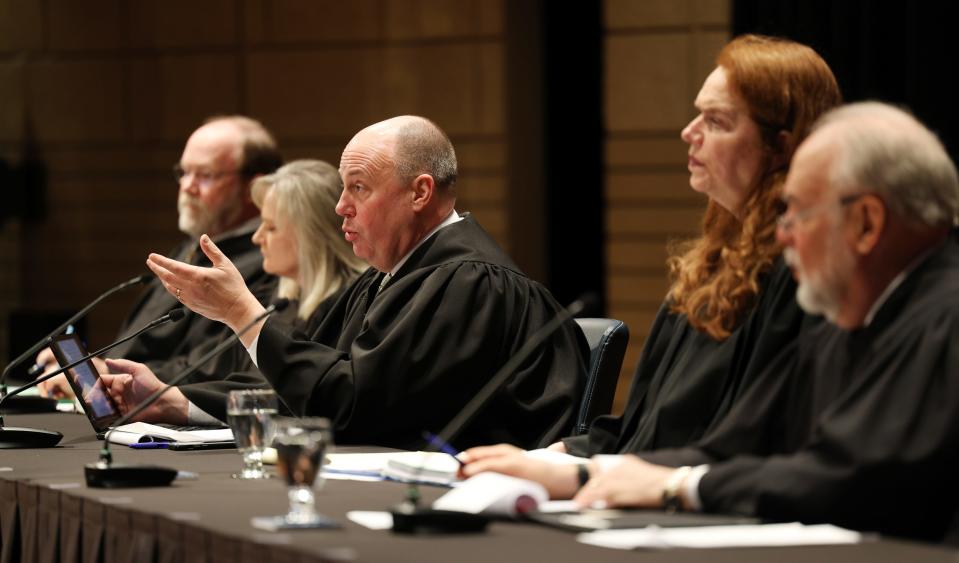Supreme Court hears arguments in test of South Dakota's 'Stand Your Ground' law
State Supreme Court justices heard arguments Thursday in Brookings, regarding a 2019 Sioux Falls murder case that became the state's first test of its 'Stand Your Ground' law.
While attorneys for the state of South Dakota argued the Court should uphold Ramon Deron Smith's 2021 second-degree murder charge, Smith's lawyer argued his client should have had a procedural hearing regarding statutory immunity and that the Second Circuit Court erred in allowing a dropped charge to be included in the jury instructions.

Following an argument and fearing for his life, Smith shot three people, fatally wounding Larry Carr Jr. before fleeing the scene in Sioux Falls. Smith was arrested in Minneapolis and stood trial in Sioux Falls in 2021, when he was found guilty of second-degree murder, first-degree manslaughter and three counts of aggravated assault.
Smith was sentenced to life in prison without possibility of parole.
Prior to the trial, a charge relating to how Smith should not have had possession of a firearm, because he was previously convicted of a felony, had been dropped by the state. However, Judge Bradley Zell had included the information in his instructions to the jury.
More:Man sentenced to life in prison after being found guilty of 2019 Sioux Falls murder
Manuel de Castro, Smith's attorney, argued weeks before Smith's trial, the Stand Your Ground law went into effect, which included statutory immunity for when the use of force is justified. He argued the law created a procedural step not allowed by Zell, saying he believed the statute couldn't be applied retroactively and it wasn't a procedural step, but rather substantive.
"The only thing that changed was there was a mechanism for the defense to come in and say, 'Hey, we believe that this statutory immunity applies,'" de Castro said.
Stephen Gemar, the attorney for South Dakota, said statutory immunity can apply to a case if a defendant claims immunity early enough. He added the South Dakota statute was based on a Florida law, where the courts found immunity was a substantive right, not procedural.
More:T. Denny Sanford attorneys argue to keep affidavits sealed in South Dakota Supreme Court
"Even if the statute is found to be retroactive, there's no need to apply it here, because the defendant was already found guilty in this case beyond a reasonable doubt," Gemar said. "He was given his jury trial. He was allowed to argue self defense and the jury rebutted that presumption, self defense, when they found him guilty."
On the dropped illegal firearm possession charge, Gemar said the state believes Zell wanted the jury "to have all the information surrounding the use of whether the defendant was justified in using deadly force."
This article originally appeared on Sioux Falls Argus Leader: SD's 'Stand Your Ground' law sees first test at Supreme Court level

